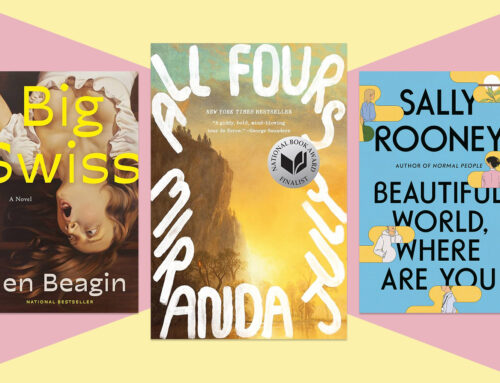“I’m serious, I don’t have an Instagram. Or a Twitter, or Snapchat.”
I wasn’t always this way. I used to be obsessed with crafting the perfect life on Instagram—doing makeshift photoshoots in my backyard, making stylish friends where our only similarity was our “aesthetic,” and obsessing over how to make my life seem as cool as possible. I was the detached, fashion-forward girl who liked art museums. People complimented my Instagram, and I would shrug, “Yeah, I like to take photos.”
I used to think that up-keeping my Instagram was an added way I could have fun with my friends; I was always the designated photographer, striving to capture the most realistic fake candids possible. Soon enough, I became consumed with other girls on social media. Girls who seemed swept up with adventure—skinny, beautiful, spontaneous. I would mimic their style, projecting that I felt the most powerful with a good outfit but without a clue of how to take care of myself outside of my image.
Slowly, I wasn’t merely taking inspiration from these other accounts. The “prettier” I looked, the uglier I felt. My life became thoughtless scrolling, wondering why I couldn’t look like these girls who emitted effortless beauty. Any moment of downtime I had, my phone was glued to my face. I wasn’t as present as I could be, more occupied with taking the perfect shot than having a good time. I even showcased pictures from bad days but without a caption disclosing that, no one knew.
“Photoshop is no longer just used by magazines trying to sell you a product. It’s used by people trying to sell you a version of themselves”
With Facetune, an app that lets you alter your appearance in photos, even being used by my friends, I couldn’t tell the difference between fake and real. Photoshop is no longer just used by magazines trying to sell you a product. It’s used by people trying to sell you a version of themselves. While I never edited my photos that way, the lack of information about who is editing their photos raises and distorts our beauty standards, where we can no longer differentiate what is a realistic ideal for women to achieve. I’m all for people expressing themselves and their bodies however they want to, but Facetune culture is heightening the difference between our online and real selves.
When confronted with why I was still on Instagram, I would convince myself that it was to gas up my friends, share my experiences with those close to me. But none of my interactions on there were meaningful, did I really need Instagram to call my friends pretty? I knew how to pose for photos but hadn’t a clue of feeling good about myself without validation. Because with Instagram, validation was always there.
So I deleted it. In the aftermath of my breakup, I didn’t have to erase all of the photos of with my ex. I stopped looking at pictures of women simply to fuel my dissatisfaction with myself. I liked that I could keep aspects of my life to myself. Whenever I took photos, it was for my own memories, not for up-keeping my feed. I realized that the “cool” girls weren’t the ones who had amazing social media, they were the ones who could remove themselves from their phones.
Social media wasn’t bringing me closer to the world; it was bringing me farther away from myself.




